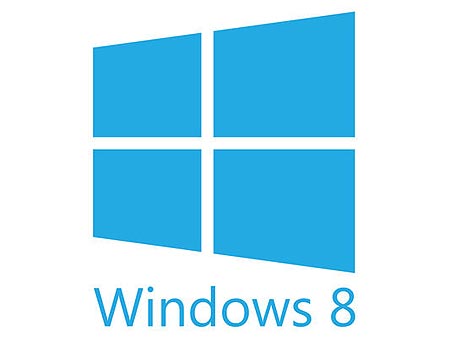Windows 8 Versus Windows 7: Game Performance, Benchmarked
We already know that the look and feel of Windows 8 is very different from Windows 7. But once you fire up your favorite title, does Microsoft's latest affect your experience? We test 10 games and talk to one of the company's SDEs to answer that question.
With A Couple Of Exceptions, Gaming on Windows 8 Is A Similar Experience
Of the 10 games we benchmarked, only one demonstrated a significant difference in moving from Windows 7 to Windows 8, and only on Nvidia's GeForce GTX 660. That game was Borderlands 2, where our average measured frame rate dropped from 86.6 to 81 FPS. But at that speed, the five-frame drop is hardly worth fretting over.
More bothersome was the compatibility issue we ran into in Sleeping Dogs, which affected Windows 8, but not Windows 7. When we chose the High detail preset, most of the in-game models simply disappeared. Fortunately, that geometry shows up again if you dial down the graphics quality. Hardly a favorable solution, but it's what we have for now.
Aside from those couple of idiosyncrasies, performance under Windows 8 is indistinguishable from Windows 7. Any speed-up or slow-down would be almost impossible to identify during game play, and we expect compatibility issues to get patched quickly by game developers.
Curious about how Microsoft approached Windows 8 differently than older operating systems, which might not have enjoyed such a smooth transition, we approached Chuck Walbourn, senior software development engineer for Microsoft, who reminded us that the company does perform a ton of application compatibility testing. More interesting, though, was a blog post he brought to our attention on MSDN. In short, it tells us that some of the performance, power management, compatibility, and battery efficiency improvements that would have required a service pack update in the past are now being made available through Windows Update much sooner. Thus, it's possible that, in some situations, performance and compatibility will improve on zero-day as a result of Microsoft's new delivery mechanism.
Chuck also wrote a good blog post to developers earlier this year, helping explain how they ensure compatibility moving forward. From a greater focus on Direct3D 11 and its feature levels that extend support to older graphics architectures to adopting modern compilers, Chuck's guidance is something ISVs probably already know, but enthusiasts might enjoy digesting.
For all of the consternation that Microsoft's new user interface is receiving, we can at least rest assured that performance and compatibility are generally quite good. As far as more future-looking worries about Microsoft's Windows Store, well, we'll have to stay tuned for more on that.
Get Tom's Hardware's best news and in-depth reviews, straight to your inbox.
Current page: With A Couple Of Exceptions, Gaming on Windows 8 Is A Similar Experience
Prev Page Benchmark Results: World Of WarcraftDon Woligroski was a former senior hardware editor for Tom's Hardware. He has covered a wide range of PC hardware topics, including CPUs, GPUs, system building, and emerging technologies.
-
mubin Only the fast boot time is noticeable in win 8. But still win7 is great and i love it as its 1years+ old running in my system, no crash, still fast.Reply -
dragonsqrrl It's good to see that there aren't any major performance deficits when moving to Windows 8, like some past Microsoft OS's. For the most part everything looks to be within the margin of error.Reply -
dragonsqrrl steve360Another reason NOT to buy Windows 8...I mean Windows Vista 2.And what reason is that? It seems pretty positive from a performance standpoint, which was the purpose of this article.Reply -
ojas Hmmm...wasn't expecting anything else.Reply
No compelling reason to upgrade for me yet.
Windows NT 7 is where it's at. B-)
EDIT: I KNOW Vista, 7 & 8 are NT 6. -
lockhrt999 My current win7 installation is more than 2 years old. I never used windows installations that are older than 4-5 months. Yes, win7 ages too but it's too slow and well managed compared to old windows OS.Reply
And yes win8 has better RAM and processor management as touted, but then you lose more time navigating through blocky interface. You complete your work a 3 seconds more with win8 but you had taken 5 more seconds to start that program from blocky interface. -
mafisometal lockhrt999My current win7 installation is more than 2 years old. I never used windows installations that are older than 4-5 months. Yes, win7 ages too but it's too slow and well managed compared to old windows OS.And yes win8 has better RAM and processor management as touted, but then you lose more time navigating through blocky interface. You complete your work a 3 seconds more with win8 but you had taken 5 more seconds to start that program from blocky interface.Reply
You do know that you can use a program called Star8 by StarDock to get your desktop and toolbar back...it works quite well, no problems over here.
-
A Bad Day mafisometalYou do know that you can use a program called Star8 by StarDock to get your desktop and toolbar back...it works quite well, no problems over here.Reply
The problem is that Star8 and other 3rd-party tools haven't been able to fully replicate Win7's Start function. -
looks like M$ is going the route of Apple and making a idiot proof OS, which is, well, good for IDIOTS :) anyone who actually wants to more than check email and play a game needs to stick to windows 7Reply
